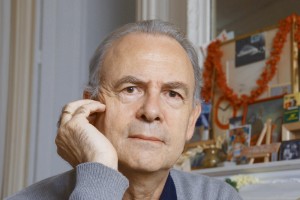
We are delighted to welcome back Nicole Logan, who has returned to Paris for the winter from her summer home in Essex. She writes our weekly, “Letter from Paris,” which gives a unique insight into France and the French. Today she writes about the depressing state of the French economy and contrasts it to the tremendous excitement that winning two Nobel Prizes has brought to the country.
It is the time of year when financial laws are voted on and budgets submitted. The 2015 budget represents a triple hurdle for France since the country is under scrutiny from the European Union (EU) Commission in Brussels headed now by Jean Claude Yuncker from Luxemburg; the Eurogroup (made up of the ministers of finances from the 18 members of the euro zone) and led by Jeroen Dijsselbloem from the Netherlands; and finally by the European Council, presided over by Herman Van Rompuy from Belgium.
Will France meet the criteria set in the 1992 Maestrich Treaty, namely an annual deficit of less than 3 percent and a public debt no more than 60 percent of that GDP? It is most unlikely, since the latest figures stand at a 4.3 percent deficit. François Hollande is criticized for not having used the two years respite, granted in 2013, to undertake structural reforms. Instead, he has limited his action to carry out an austerity program by steadily increasing taxes on the most vulnerable individuals like retirees, wage earners or small entrepreneurs.
So to-day the French government is scrambling for ways to reduce its expenses by 21 billion Euros. Three sudden measures have shocked public opinion: closing of the Val de Grace hospital, an historical institution in Paris, the military base of Chalon, and the oldest air base of France in Dijon. More savings are on the table but promise to provoke violent confrontation since they are all considered as untouchable taboos.
Given the fact France’s economy is the second of Europe, the widespread opinion is that it cannot be allowed to fail. Imposing sanctions of 0.02 percent would make it even more impossible for the country to pull out of a recession with dire consequences for the rest of the continent. Behind the scenes, the new French Minister of Economy Emmanuel Macron and his German counterpart are at work on the elaboration of a common investment policy.
Two Nobel prizes have just been awarded to French nationals. This unexpected news has definitely lifted the spirits here.

Patrick Modiano received the prize for Literature, following in the footsteps of Camus, Sartre and Gide. Several of his many novels take place during the German Occupation of France. One of them inspired Louis Malle for his outstanding 1974 film Lacombe Lucien.
The Nobel prize for Economics is particularly interesting because it rewards not only an individual, but also an institution. Jean Tirone, born in 1953 and a graduate of the Ecole Polytechnique, holds a PhD from MIT. In 2007, he founded the Toulouse School of Economics (note that this name is in English), inspired from an American model. It is today one of the world’s 10 most important centers for economic research.
Tirone belongs to the school of economists using a rigorous scientific and mathematical approach. His research is centered on the regulation of free market economy. Tirone’s nomination follows the phenomenal success of Thomas Piketty ‘s ” Capital in the Twenty First Century” published in 2013.

About the author: Nicole Prévost Logan divides her time between Essex and Paris, spending summers in the former and winters in the latter. She will write a regular column for us from her Paris home where her topics will include politics, economy, social unrest — mostly in France — but also in other European countries. She also will cover a variety of art exhibits and the performing arts in Europe. Logan is the author of ‘Forever on the Road: A Franco-American Family’s Thirty Years in the Foreign Service,’ an autobiography of her life as the wife of an overseas diplomat, who lived in 10 foreign countries on three continents. Her experiences during her foreign service life included being in Lebanon when civil war erupted, excavating a medieval city in Moscow and spending a week under house arrest in Guinea.